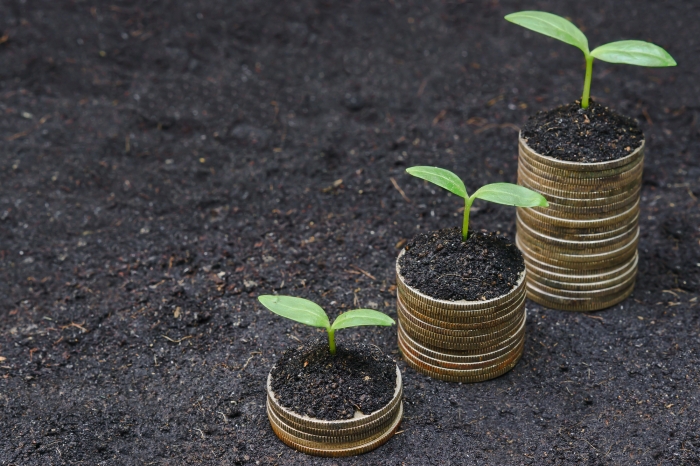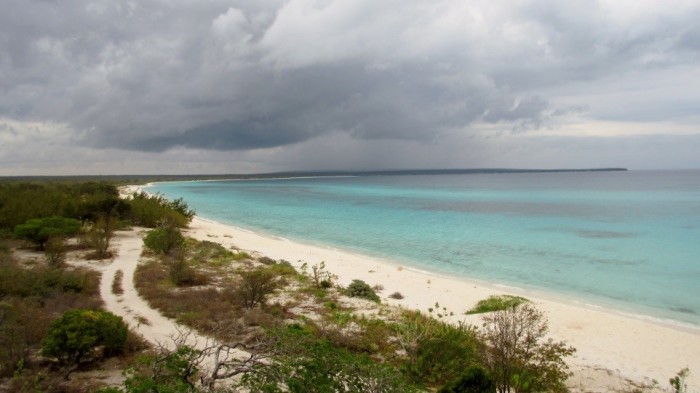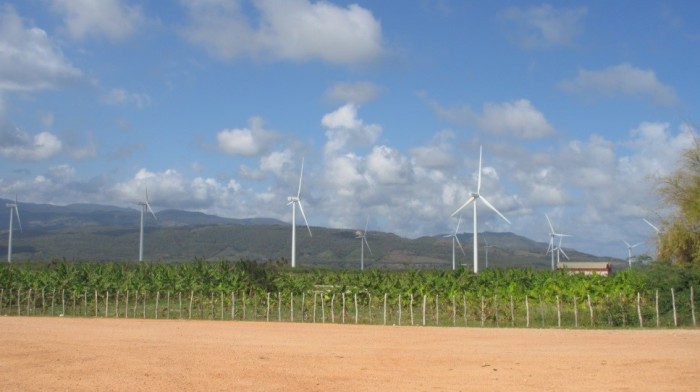 By GRT Guest Blogger Jenna Giandoni, GFDD Fellow and Author of Impact Investing in the Dominican Republic
By GRT Guest Blogger Jenna Giandoni, GFDD Fellow and Author of Impact Investing in the Dominican Republic
In April of this year, the Global Foundation for Democracy and Development organized and moderated the panel, Why Impact Investment Can Be an Effective Tool for Social Development, at the World Bank Group/IMF Civil Society Policy Forum. As a keynote speaker, I had the honor of presenting my research on impact investing conducted in the Dominican Republic. In November, while visiting the Dominican Republic, we will be fortunate enough to present the findings for audiences not only interested in understanding the world of impact investing but also who have the intention of applying this information that has the potential to advance economic development in an environmentally and socially sound way.

Through my research and continued profession in the international development and renewable energy sectors, I continue to promote impact investments and the necessity for implementing a triple bottom line approach. Impact investing and the role this investment strategy should play in developing countries, specifically the Dominican Republic, is a concept that could significantly alter the fate of not only individuals in developing countries but of the country at a macroeconomic level, as well. The highlighted companies in my research were identified through outreach while working as a Fellow in the Dominican Republic. The businesses represent a larger array of companies that could benefit from impact investments, primarily operating in the environmental sector, a sector widely neglected in traditional investment strategy. These businesses serve as a glimpse into the world of renewable energy and sustainable agriculture in the Dominican Republic, while offering insight into the potential of impact investing throughout the country and the globe.
With that said, let us briefly examine impact investing. According to the Global Impact Investing Network (GIIN), impact investing includes “investments made into companies, organizations, and funds with the intention to generate measurable social and environmental impact alongside a financial return”. Marguerite H. Griffin of Northern Trust further categorizes impact investors into three categories: impact first, investment first, and catalyst first. Essentially, impact first investors are driven by maximization of impact, whereas investment first investors are primarily interested in market-rate or premium returns on their investment. Catalyst first investors are investors who seek to give or invest in collaborations to build the impact investing industry and infrastructure.
Because of the expected US$30 trillion transfer of wealth expected over the next several decades into the hands of those who have a different approach to investing compared to their predecessors, impact investing is receiving far more attention in order to prepare for this transfer of wealth and ideology. Fortunately, impact funds provide market rate returns and above as measured against comparative non-impact investment funds.
Impact investments are not only receiving attention in developed countries. Many organizations such as the International Finance Corporation (IFC) have begun to make impact investments in developing countries such as the Dominican Republic. The IFC issued 5-year 10.5% Taino Bonds in December 2012, representing the first domestic placement by an international triple-A rated issuer in the Dominican Republic. Again in 2016, the IFC issued 6.5 year 8.75% Taino Bonds to assist the development of microenterprises. Other organizations and financial institutions, such as the Overseas Private Investment Corporation (OPIC), have stated their intent to follow suit with future investments in Latin American and Caribbean nations, specifically in the environmental sector. Environmental entrepreneurs, such as those operating in sustainable agriculture, ecotourism, and renewable energy, can all have a positive impact on the environment. These businesses have an environmental focus incorporated into their business model, recognizing the severity of climate change, and have a desire to minimize the environmental effects associated with human activity.

The Dominican Republic, like man y developing countries, is extremely vulnerable to the effects of climate change. USAID’s Climate Change Vulnerability Assessment Report outlined the vulnerability of islands such as the Dominican Republic to climate change, serving as a warning for policy makers and the private sector that have historically neglected environmental considerations, especially in the business sector. The result of these impacts could have overwhelming effects on local populations and the international community. Hurricanes, for example, are expected to increase in the coming years as we have continued to witness in recent months. The journal, Nature, and the US Department of Energy further confirmed that stronger hurricanes in the Caribbean region are likely to grow even more intense as a result of global warming. As sea levels rise, areas that were once dry are now under water in the Dominican Republic and local fishermen observe the effects of climate change as they watch mangroves disappear and flooding increases. Additionally, inefficient farming practices throughout the country in relation to fertilizer usage affect the entire fishing industry as increased runoff into the waterway system kills coral reefs which protect smaller fish. Higher temperatures are also predicted in the Dominican Republic due to climate change and even the slightest changes in temperature could have drastic effects spanning across countless industries including but not limited to agriculture, energy, health, tourism, and infrastructure development.

Fear not. It is not all doom and gloom. Impact investing provides a comprehensive solution to climate change. The businesses highlighted in my research include sustainable dairy, tilapia, and cacao businesses along with solar and wind farms. It is these types of businesses that have recognized a responsibility to maintain a balance in the ecosystem while not sacrificing financial gain. They are pioneers leading the way, carving in stone, shaping what will be the future of the business sector. For if we continue down the current destructive path, making investments with no consideration for social and environmental impact, we will truly become lost as a species. The world will survive, but it is our time to take responsibility and support these burgeoning businesses. The time is now to invest, impact invest.
Find out how here: Four Ways to Get Involved with Impact Investing
For investors, advisors, and fund managers: GIIN’s Impact Base
